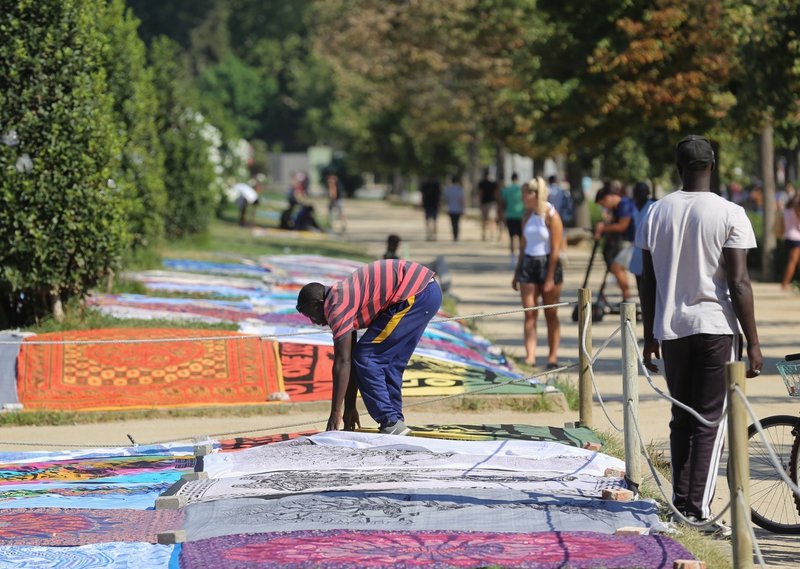Black lives matter in Barcelona
Unlike the UK or USA, one of the more visible ways that many Europeans are used to seeing black people is at work as street sellers, especially during summer in the bigger cities. These are the so-called ‘top manta’ who display their products on blankets in busy places.
In July three years ago, Barcelona’s ‘top manta’ vendors – virtually all of whom are of African descent – decided to set up their own website and clothing brand. Their aim was to turn an illegal activity into a more widely accepted one by “officially registering as a non-profit organisation/union.”
In a piece of good news, they recently finished the first round of their crowdfunding campaign to which almost 2,500 people donated (mainly in amounts of less than 50 euros) to reach their initial target.
(This entrepreneurial move predated the 2015 tragic death of a local man of Senegalese origin who fell from his third floor apartment balcony in Salou during a law enforcement raid. His family sued the police.)
The union collective says the business venture is part of a broader goal to improve their living conditions as marginalised people and because they “want an alternative to the fake products we dreamt we could take off the streets in our city.”
The association was formed by migrants from various African countries who have found a form of daily subsistence in street vending. They argue that they want to have legal employment and residence status but that has been denied them.
Under the slogan “Surviving is not a crime,” their collective had been founded as “a way to support [themselves] in the face of the harshness of selling in the street every day and as a way to defend [themselves] in the face of institutional racism, persecution and criminalisation.” They are also keen to remove the stigma around their jobs and emphasise that they are “creative individuals with ideas and ambition, [just] like you.”
Some members have talked about the dignity of their work even though many earn an income that barely reaches 200 euros a month.
A recent Barcelona council investigation found that, contrary to allegations, there was “no mafia” involvement in the supply of products to ’top manta’. It is believed that there are organised groups involved in the trafficking of people who bring these immigrants to Spain and there are also “criminal bands” linked to counterfeit goods.
Partly due to pressure from several migrant collectives, in 2010 street vending was “de-penalised” in Spain and it became a minor infraction. But again in 2015, a penal code reform, carried out by the conservative government of the People’s Party (PP), reestablished street vending as an offence with sanctions of between six months and two years jail.
Legal status of ‘top mantas’ aside, I am interested that these men and their families have an income that allows them a decent life that keeps each of them away from serious crime as a way of making ends meet financially.
Some other members of the public have expressed frustration that ‘top manta’ sellers take business away from established shops and businesses, as well as the complaint that they pay no tax and are selling goods manufactured by children in extreme poverty.
These strike me as probably valid points that need to be worked out, but on a European-wide basis rather than a national or local one. Overall though, we face the problem of what should (and can) be done when people are trapped in the kind of situation the ‘top mantas’ are.
Everyone has the basic right to a decent living. How governments and society deal with this is a huge question that tests how humane we really are.

